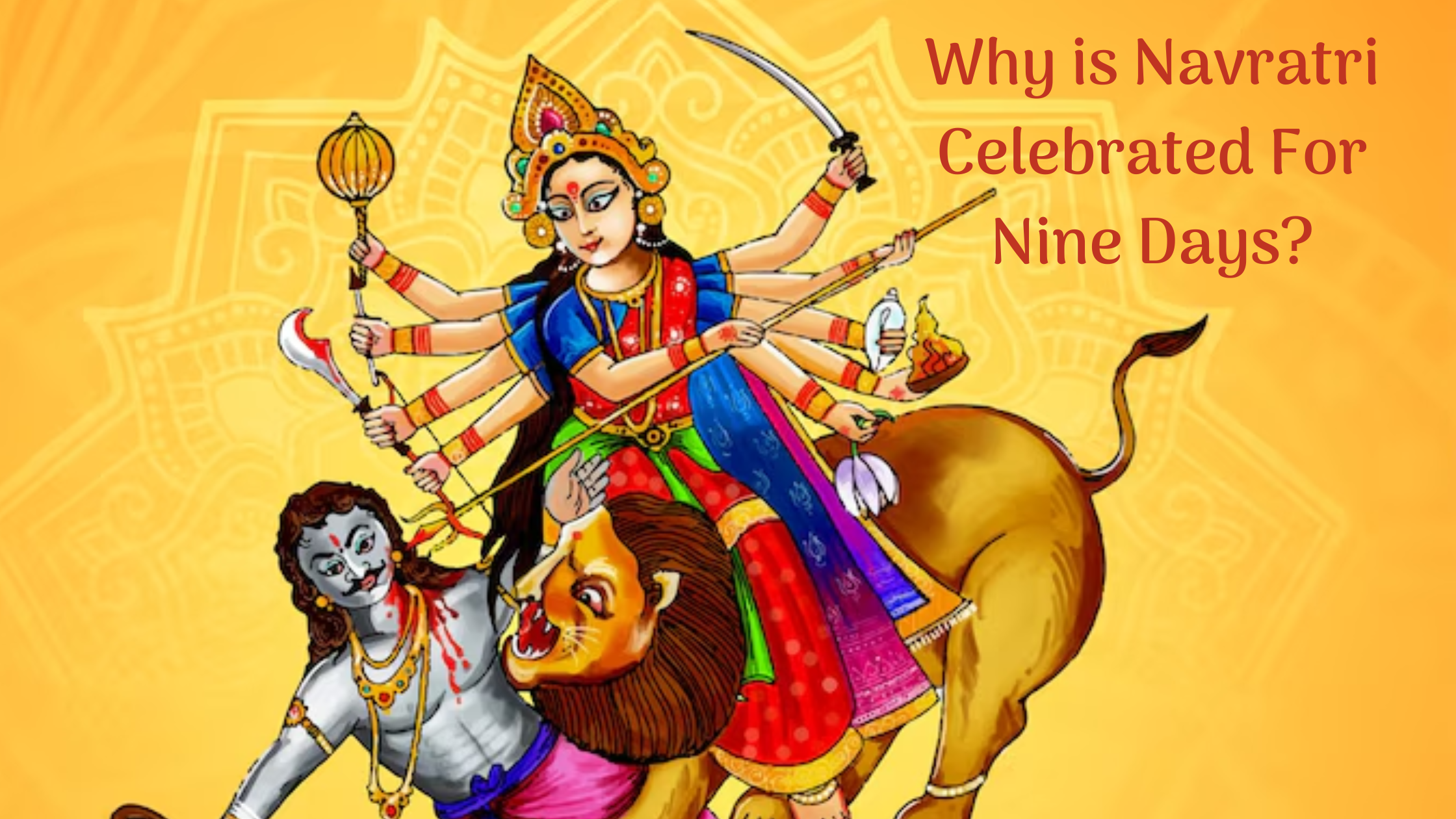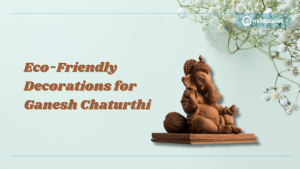Why is Navratri Celebrated For Nine Days?
Navratri, a very important Hindu festival celebrated predominantly in India, sums up the age-old Hindu traditions and beliefs. This colourful festival, which spans nine nights, is dedicated to the worship of the Goddess Durga, a central deity representing feminine power and strength.
The name “Navratri” itself is derived from two Sanskrit words: “Nava,” meaning nine, and “Ratri,” meaning nights.
The nine-night celebration serves as a period of devotion and a reminder of the cyclical nature of time, the battle of good versus evil, and the reverence for the divine feminine.
In this blog, we will explore the reasons behind the nine-day celebration of Navratri, delving into its spiritual, cultural, and historical significance and how you can stock up on all the Navratri must-haves in Milkbasket’s Navratri Sale where you can buy groceries online along with other essentials to make Navratri more special.
Spiritual Significance
The spiritual aspect of Navratri is deeply intertwined with the Hindu belief system, focusing on the concept of Shakti, or divine energy.
Each of the nine nights is dedicated to a different manifestation of Goddess Durga, each representing distinct attributes and virtues. The nine forms of the goddess known as Navadurga, include:
- Shailaputri – the daughter of the mountains, symbolizing nature and strength.
- Brahmacharini – the goddess of austerity and penance, representing devotion.
- Chandraghanta – the goddess of beauty and bravery, denoting the importance of inner strength.
- Kushmanda – the creator of the universe, symbolizing creativity and fertility.
- Skandamata – the mother of Kartikeya, representing motherly love and protection.
- Katyayani – a warrior goddess, embodying courage and valour.
- Kalaratri – the fierce form, representing the destructive aspects of nature.
- Mahagauri – the embodiment of purity and serenity, reflecting peace and serenity.
- Siddhidatri – the goddess of accomplishment, representing the attainment of spiritual goals.
Each night, devotees engage in rituals, prayers, and dances that reflect the goddess’s characteristics.
This structured approach allows worshipers to immerse themselves in the multifaceted nature of the divine feminine and seek blessings for prosperity, strength, and protection from malevolent forces.
Mythological Foundations
The nine-day celebration of Navratri also finds its roots in various ancient Hindu myths and legends, most notably in the narrative of the battle between Goddess Durga and the buffalo demon, Mahishasura.
According to the legend, Mahishasura terrorized the heavens and defeated the gods, who then resorted to creating Durga, embodying their collective power.
The nine-day battle between Durga and Mahishasura culminated on the tenth day, known as Vijaya Dashami or Dussehra, which marks the victory of good over evil.
Thus, the nine days of Navratri represent the ordeal faced by Durga, symbolizing the struggles individuals contend with in their lives.
Cultural Significance
Culturally, Navratri is an event that transcends mere religious observance; it epitomizes the vibrancy of Indian traditions. During this festival, various regions in India celebrate with unique customs, showcasing the cultural diversity of the country.
In Gujarat, for instance, the festival is characterized by energetic folk dances known as Garba and Dandiya, which bring people together in a spirit of joyous celebration. In the southern states, devotees partake in elaborate ‘kolu’ displays that feature dolls representing deities and mythological characters.
In Bengal, the festival culminates in the immersion of Durga idols, a practice that is rich in artistic expression and social bonding.
Additionally, Navratri promotes a sense of community. People from diverse backgrounds gather to partake in celebrations, engage in communal prayers, and participate in festive events.
This communal spirit fosters unity, transcending social, economic, and cultural barriers, thereby reinforcing the notion of inclusivity and harmony.
The Nine Nights of Fasting and Rituals
Fasting during Navratri holds profound symbolic significance. It serves not only as a form of penance and purification but also as a means to cultivate discipline and self-control.
Different traditions may prescribe varying types of fasting, ranging from complete abstinence from food to consuming specific vegetarian dishes.
This practice allows individuals to develop a deeper connection with their spirituality, turning the focus inward and fostering an atmosphere conducive to meditation and reflection.
Moreover, each night is typically marked by rituals that may include the recitation of prayers, chanting of mantras, and offering of food and flowers to the deity.
The continuous engagement in these acts of devotion and reverence helps create a sacred space and reinforces the significance of the divine presence within the lives of believers.
Conclusion
The nine-day celebration of Navratri is not merely a festival; it is a profound expression of spirituality, culture, and community.
Through the worship of the nine forms of Goddess Durga, devotees engage in a rich tradition steeped in historical myth and contemporary practice.
As you observe these sacred days, Milkbasket, India’s favorite daily milk delivery app, is here to support your preparations, making it easier to focus on your devotion while ensuring you have all the essentials at your fingertips.
From fasting snacks to pooja items, Milkbasket’s Navratri Magic Sale helps you stock up on everything you need without stepping out. Embrace the spirit of Navratri, and let Milkbasket take care of your daily needs, so you can fully celebrate this special occasion.
Through Navratri, we not only honour the goddess but also embark on a journey of self-reflection and spiritual growth.
Let Milkbasket be your companion in this festive celebration of life, devotion, and the collective pursuit of goodness.
Categories
Popular Posts
-

4 Eco-Friendly Decorations for Ganesh Chaturthi
Spread the loveLooking for sustainable eco Ganpati decoration ideas as Ganesh Chaturthi approaches on August 26, 2025? You’re not alone in wanting to celebrate Lord Ganesha while protecting our environment. This festival season, you can create beautiful decorations that honor tradition without harming the environment. Milkbasket understands your need for convenient online grocery delivery during […]
19 Aug 2025 read More... -

Milkbasket – A Revolution In The Online Grocery Delivery Services In India
Spread the loveThere’s no denying the fact that the pandemic has drastically changed the way people spend their time online, buying everything through various online retail platforms with the convenience of home deliveries in India. Milkbasket, with it’s features has proven to be a revolution in the online grocery delivery services in India. While stepping […]
08 Jul 2022 read More... -

Milkbasket’s Latest DVC Campaign Is Out, And It’s Quirky And Relatable As Heck!
Spread the loveThe year 2021 was all about patience, resilience, and the grind it takes to get back up from a worldwide slump that the COVID-19 pandemic had hit us with. It made us all revisit our roots, recalibrate our priorities, and strengthen our foundations. With the better part of 2022 gone into slowly spreading […]
28 Sep 2022 read More... -

Nabhi Chikitsa or Belly Button Therapy: The Simple Health Secret You NEED To Know!
Spread the loveOur Navel or Belly Button (scientific name Umbilicus) is believed to be the centre of our life force. Most of us take it as just another part of our body not knowing its deep, thrilling world. In ancient Hindu healing practices, the Navel is considered to be the most important point of the […]
08 Sep 2022 read More...






